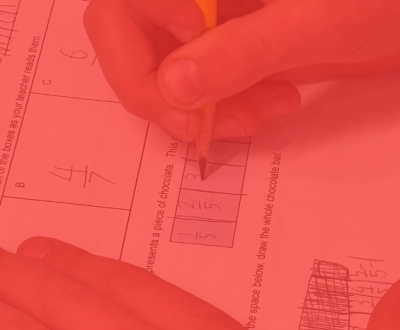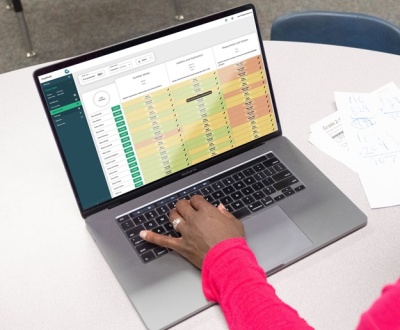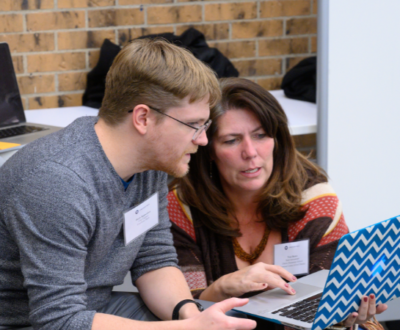Turning USNS Results into Action
- February 6, 2025
- Blog
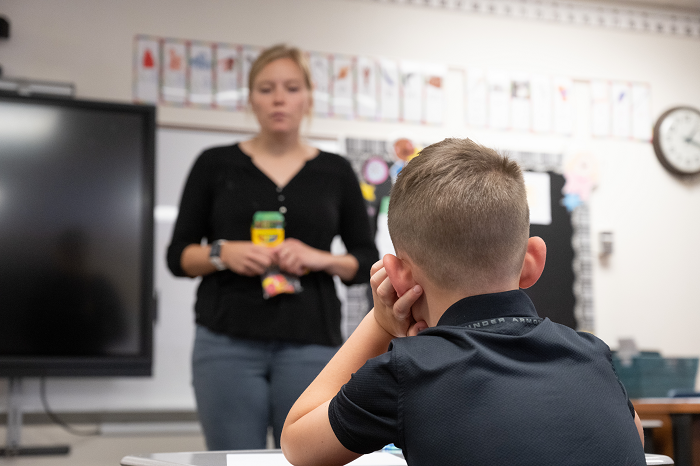
For educators, "data is actionable" is overused to the point of losing meaning. In a recent conversation with Dr. Carla Evans and Dr. Scott Marion from the Center for Assessment, they shared a visual representation of the steps teachers take to translate assessment results into instructional responses. While many of the assessments teachers analyze do not fit into even the simplest example of this model, it still provides a useful framework for understanding the process of moving from assessment data to instructional action.
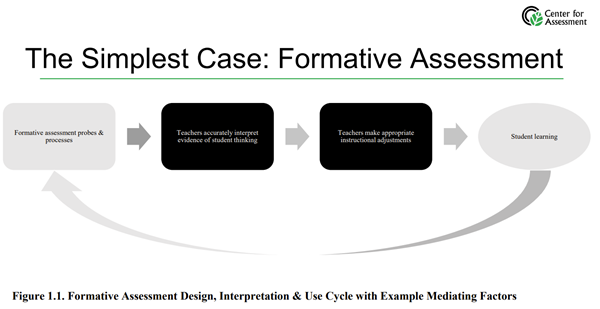
One of the key challenges educators face is not just visualizing assessment data but knowing how to respond to it. Forefront helps teachers interpret evidence of student thinking by making assessment data more accessible. However, taking the next step—making informed instructional decisions—often depends on a teacher’s experience and familiarity with different strategies. To support this process, we have embedded Next Steps guidance into assessment reports for several key assessments, including the Universal Screeners for Number Sense (USNS), DIBELS 8, and Bridges in Mathematics, Third Edition. These embedded resources provide teachers with concrete strategies for responding to assessment data. Learn more about Next Steps resources.
USNS Next Steps Resources
For the Universal Screeners for Number Sense (USNS), our Next Steps documents compile instructional resources from a variety of high-quality sources, including:
-
- Teaching Student-Centered Mathematics: Developmentally Appropriate Instruction for Grades Pre-K-2 by John Van de Walle
- Teaching Number in the Classroom with 4- to 8-Year-Olds by Robert Wright, Garry Stanger, Ann Stafford, and James Martland
- NRICH Mathematics Project
- Mathing Around
- Math Recovery Community Resource Hub
- SFUSD Math Core Curriculum
- Graham Fletcher’s 3-Act Tasks
- Berkeley Everett’s Math Flips
- Kentucky Center for Mathematics
- Howard County Public Schools
- Desmos Classroom
- PhET Simulations from CU-Boulder
These resources offer a diverse set of strategies that teachers can use to tailor their instruction based on student needs. They also help bridge the gap between identifying student needs and implementing meaningful instructional interventions. Want a demonstration of this resource and how it can help your teachers? Book a conversation with us today.
Spotlight on PhET Simulations
One resource we want to highlight from our USNS Next Steps materials is PhET Interactive Simulations. PhET is an initiative from the University of Colorado at Boulder. They have designed a collection of over 100 interactive simulations designed to teach science and math. For elementary math alone, there are 23 interactive simulations available for free on the web. These simulations can be run online or downloaded for offline use.
The goal of PhET is to create an open, exploratory learning environment where students engage with scientific and mathematical concepts the way scientists and mathematicians do—through exploration, experimentation, and problem-solving. Each simulation is accompanied by teaching resources, making it easier for educators to incorporate them into their lessons. Additionally, these tools are research-based and highly interactive, allowing students to develop a deeper conceptual understanding of mathematical ideas through guided or independent exploration.
Continue the Learning
Many educators find it challenging to connect assessment data with meaningful instructional responses. PhET simulations offer a hands-on, engaging way for students to interact with math concepts, reinforcing their learning through play and discovery. For teachers, PhET provides free, research-backed tools that are easy to use in any classroom setting.
As we continue to support teachers in making assessment data meaningful, tools like PhET offer a practical way to turn insights into impactful instructional actions. To support educators in effectively using PhET in their classrooms, we co-presented with them:
-
- March 10 (K-2 Focus) at 6 PM (Watch On-Demand)
- May 14 (3-5 Focus on Fractions) at 6 PM (Watch On-Demand)
Each session includes an hour-and-a-half introduction to PhET's free interactive math simulations, along with an in-depth demonstration to integrate the tool in K-5 instruction. Watch the presentations on demand with the links above or access their free simulations today.
About us and this blog
Our team and tools help schools implement standards-based grading, streamline assessment systems, and use meaningful data to drive decision-making.
K-5 Free Math Sims
Join Catherine Carter, Ed.D, from the University of Colorado at Boulder's PhET team and David Woodward, founder of Forefront Education, for an overview and demonstration of PhET’s free math simulations. This two-part series will provide participants with an introduction to the content areas covered by PhET’s free elementary math simulations and how they can be used to support elementary math instruction.
The first session, focused on supporting grades K-2, and the second session, focused on supporting fractions instruction in grades 3-5, can be watched on-demand.
More from our blog
See all postsForefront is the only assessment data solution optimized for classroom assessment results, leveraging these results to fuel instruction, PLCs, and grading. Elevate meaningful assessment data district-wide to transform how you understand and communicate about student learning across your schools.
Copyright © 2025 Forefront Education, Inc. All Rights Reserved.



